

(Editor’s Note: In the holiday spirit we present this enlightening poem — with a tip of the hat to Dr. Seuss. Please click on the link for the stanza layout.)
All the Las
Down in La-ville
Liked Christmas a lot…
But the Snitch,
Who lived just North of La-ville,
Did NOT!
The Snitch hated Christmas! The whole Christmas season!
Now please don’t ask why, ‘cause we all know the reason.
What made that old Snitch-man so mean and so sour
Was the way all the Las used up holiday power.
They used it on parties. They used it on shows.
They used it to light up a young reindeer’s nose.
But what made the old Snitch really put up a fight
Was the excess they used on their holiday light.
How he hated the blinking!
» Read more about: A Christmas Snitch Sees the Light (LEDs, That Is) »

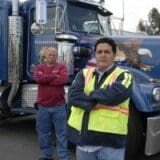
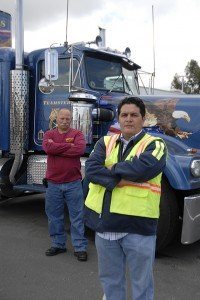 (Editor’s note: This letter first appeared on cleanandsafeports.org, coinciding with yesterday’s protests organized by the Occupy movement at ports up and down the West Coast.)
(Editor’s note: This letter first appeared on cleanandsafeports.org, coinciding with yesterday’s protests organized by the Occupy movement at ports up and down the West Coast.)
We are the front-line workers who haul container rigs full of imported and exported goods to and from the docks and warehouses every day.
We have been elected by committees of our co-workers at the Ports of Los Angeles, Long Beach, Oakland, Seattle, Tacoma, New York and New Jersey to tell our collective story. We have accepted the honor to speak up for our brothers and sisters about our working conditions despite the risk of retaliation we face. One of us is a mother, the rest of us fathers. Between the five of us we have 11children and one more baby on the way. We have a combined 46 years of experience driving cargo from our shores for America’s stores.
» Read more about: An Open Letter From America’s Port Truck Drivers »
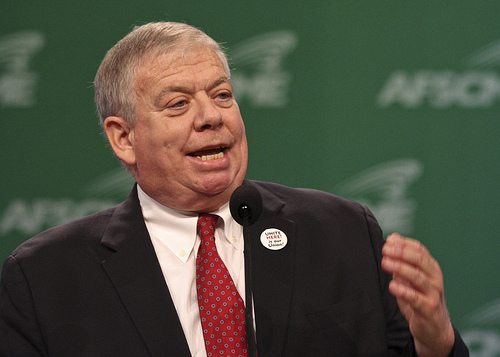

For some time Merle Haggard’s lyrics about vanishing jobs and workmanship have seemed more like a lament than the pep talk they were intended to be:
I wish a Ford and a Chevy
Would still last 10 years
Like they should . . .
When a man could still work, still would.
And are the good times really over for good?
Even with some signs that industry is making a timid return to America, organized labor is struggling to influence political events. The Frying Pan spoke about this on December 8 with UNITE HERE president John Wilhelm, shortly before he introduced honoree DeMaurice Smith, head of the NFL Players Association, at LAANE’s City of Justice Awards Dinner at the Beverly Hilton Hotel.
Wilhelm, whose union represents hospitality workers across North America,
» Read more about: John Wilhelm on Whether the Good Times Are Really Over »


The Australian woman with the large framed glasses signaled me to come over to her table, where her husband and she were having a difficult time understanding the check. It’s a conversation I’ve had many times with our overseas guests at the RH restaurant inside the Andaz Hyatt Hotel on Sunset, where I work as a waiter.
“No, Ma’am, a server’s gratuity is not included in the check.” I told her.
She looked at her husband and blushed. They had been at the Andaz for a week. They had eaten in the restaurant at night a handful of times, but they hadn’t tipped their servers anything. They were embarrassed. I was embarrassed. It’s an odd thing to guide someone on how to pay you.
Of course as an employee, I’m never allowed to tell a customer what to tip. That is an offense that I would likely get fired or disciplined for,
» Read more about: An American Waiter: Reaching the Tipping Point in L.A. »
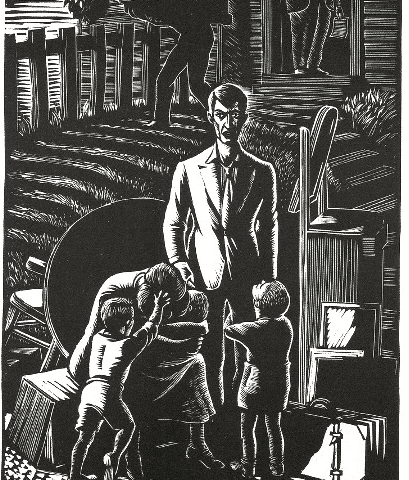
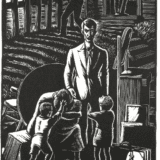
Criticized for focusing more on what it is against than what it is for, the Occupy Wall Street movement has now found an organizing issue it can embrace. Perhaps because so many Occupiers have recently been evicted from their encampments in cities across the country, they have found common cause with the growing number of American families facing foreclosure. Last week, after the Los Angeles Police Department evicted Occupy LA from the park outside City Hall, Mario Brito, one of the group’s lead organizers, said that the movement’s activists would begin to set up occupations at the homes and country clubs of major bank executives reside and to work with other groups to protest the growing wave of foreclosures.
More and more homeowners facing wrongful foreclosure evictions are taking a bold stand by resisting banks’ unfair actions. They are deciding to stay in their homes and fight. When the banks or sheriffs come knocking on their doors,


As a first-time parent of a two-year-old child I am now more convinced than ever that environment plays a major role in how we develop as humans. Not that I did not believe this prior to being a father, but nothing other than environment serves as a plausible explanation for some of my son André’s behaviors that neither my wife nor I can even begin to comprehend.
One of those behaviors is, ironically, his utter infatuation with trash trucks. I say ironically not only because neither my wife nor I nor any close relative care much for trash trucks but also because I happen to be the community organizer for Don’t Waste LA. Started last year, Don’t Waste LA is an effort to reform the commercial and multi-family waste industry in Los Angeles in a way that will, among other things, reduce trash truck traffic in the city. So trash trucks are not all that exciting to my wife and me,


(This post by the California Labor Federation’s Steve Smith first appeared at Labor’s Edge.)
A new report released today by the AFL-CIO shows that more than 305,000 Californians will lose their unemployment benefits on December 31 if Congress fails to act to extend unemployment insurance.
Electrician Alexander Stewart, who has been out of work since July 2010 and will lose benefits if Congress fails to act by the end of the year:
We elect Congress to look out for the interests of everyday people. It’s appalling that elected officials would let petty politics stand in the way of extending unemployment insurance, the only thing keeping my family and so many others afloat in these tough times.
In California as well as across the country, jobless workers and their communities will be holding actions Thursday to call attention to the ongoing jobs crisis and to urge Congress to take immediate action to extend unemployment benefits.
» Read more about: Unhappy New Year for Jobless Californians »

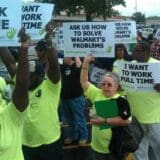
More than one million Americans work at Walmart. I am one of them. I started at the Mount Vernon, Wash., store in November of 1999 as a sales associate in sporting goods and worked my way up to an assistant manager. After a couple of years I no longer had any pride in my job. I felt like I was treating people like property instead of employees. Now I work as a sales floor associate and a front-end cashier.
Many of my co-workers became homeless because they had their hours cut. Many associates are living in poverty and are afraid to speak out and ask for more hours. They fear retaliation.
You’ve heard that story before. But here’s something new. I have joined the Organization United for Respect at Walmart, OUR Walmart for short. It is a new organization of former and current Walmart associates who are coming together to get respect at work from one of the nation’s largest employers.
» Read more about: Don’t Discount This: Walmart Worker Issues Challenge to Her CEO »
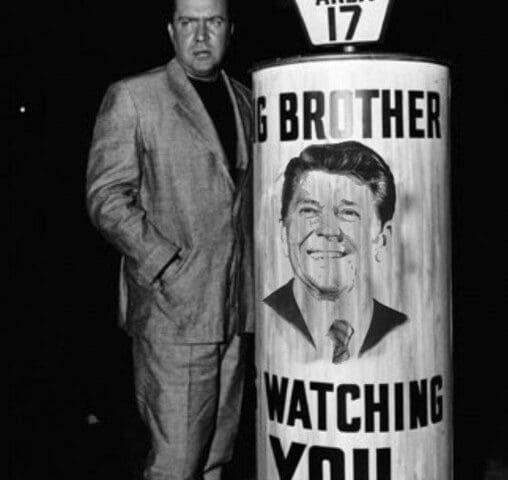
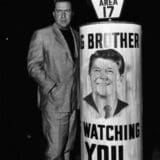
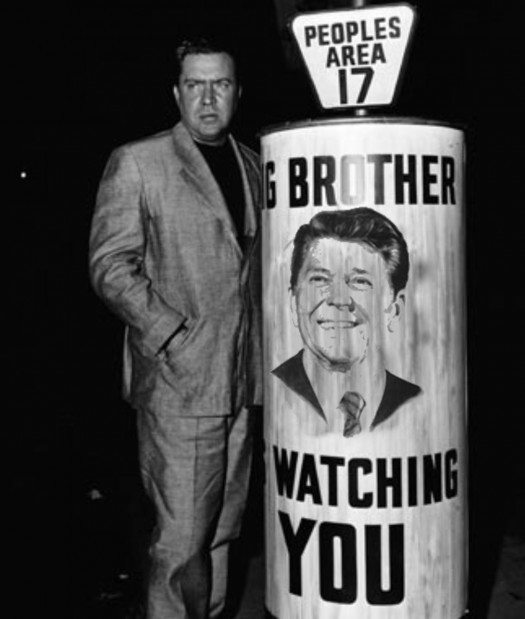 Frank Luntz, the Republican pollster and messaging guru, gave a recent talk where he described his 10 biggest Do’s and Dont’s for talking about the economy in the post-Occupy Wall Street environment. It’s worth reviewing these 10 points and reflecting on what Luntz’s insights on behalf of the 1% tell us about how we can successfully talk about the issues we care about, on behalf of the 99%.
Frank Luntz, the Republican pollster and messaging guru, gave a recent talk where he described his 10 biggest Do’s and Dont’s for talking about the economy in the post-Occupy Wall Street environment. It’s worth reviewing these 10 points and reflecting on what Luntz’s insights on behalf of the 1% tell us about how we can successfully talk about the issues we care about, on behalf of the 99%.
The main thing – the frightening thing – is that Luntz has a history of actually succeeding at changing the debate in America. Why? Because Republicans like Luntz are masters of the reductive fear phrase and it comes out all over his suggestions. These are the guys, after all, who turned inheritance duties into “death taxes” and from that, advisory health committees into “death panels.” But they’re clearly on the defensive here – for the time being.
Luntz begins his talk to the Republican base by admitting,


A little while ago, after the Long Beach City Council’s Elections Oversight Committee decided to consider revising the city’s lobbying ordinance to include the kind of 501(c)3 nonprofit organizations that I work with, nonprofits and their members filled the Council chambers to defend the ordinance as it was written, nonprofit exemption intact.
The distinctions between our work of and that of paid lobbyists seemed obvious. For starters, nonprofits are working for people not – um – profit. From the arts to autism, good jobs to good mental health, sustainable food to affordable housing, nonprofits representing a broad swath of Long Beach residents and issue areas drove the message home: “We’re not lobbyists.”
Beyond wearing stickers saying “people are our special interest,” each speaker teased out more of the things that set us apart from lobbyists. Unlike lobbyists, nonprofits have several federally regulated checks in place to ensure that the issues we work on and our funding streams (among many other things) are transparent to the public.
» Read more about: Our “Special Interest” Is People: Long Beach Nonprofits Draw a Line in the Sand »